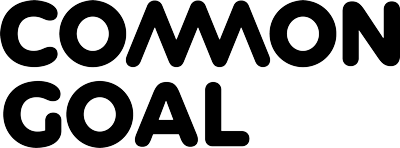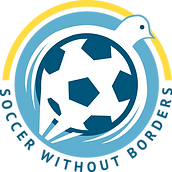Team Challenges are experiential learning opportunities designed to integrate right into your team’s regularly scheduled practices, games, and/or team time. Challenges range in time commitment from 15 minutes to over an hour, and in emotional intensity from from low to high. Most challenges require few, if any, additional materials beyond your typical coaching equipment.
There are three types of team challenges: Educate, Exchange, and Activate.
Educate challenges focus on “me” through individual learning, reflection, and discussion. Educate challenges primarily include some individual homework followed by a team discussion in a classroom setting.

Exchange challenges focus on “we” through sharing of teammates’ perspectives and experiences. Exchange challenges primarily take place on the soccer field within a team practice session.

Activate challenges focus on “us” by mobilizing teams to take collective action in their community, engaging other stakeholders such as parents, referees, opposing teams, and club officials. Activate challenges typically take place on game day or during team time.

Leadership is about motivating others to action and leaders come in all forms of people. “Stories From the Field” Challenges draw on real-life examples from the soccer world to engage players and teams in meaningful discussion about soccer, race and society. In this challenge, teams will read one of three articles about athlete activism featuring Adama Traoré, Tommie Smith, or the WNBA.
GoRacism has many forms – some are more overt than others, but they are all harmful. In this challenge, players will categorize different types of racism using analogies to soccer. Coaches will guide players through different scenarios involving racism that are seen on the field. After hearing the scenario, players will categorize the incident according to two different types of fouls in soccer – a yellow card or a red card. Each card represents a different type of racism, covert or overt, and acknowledges the fact that while they may be different, all incidents of racism are harmful “fouls”.
GoDonating equipment is a common way for communities with more resources to give to communities with less resources; however, not all equipment donations are helpful or welcome. In some cases, donations can actually cause more harm than good, despite the good intentions that inspire people to donate equipment. This challenge is about learning how to run an equipment donation that benefits the recipient(s) and moves towards building a more equitable world.
GoIn this challenge, teams will explore the concept of power and its ability to impact different environments. In society, power influences people, and gives certain advantages depending on who is wielding it. In this drill, teams are going to demonstrate that concept through a possession drill where certain teams are given powers that give them an advantage. Just like in real life, different people might wield power differently, so how players choose to use their power will impact their results in the game.
GoIn this challenge, players will create their own “Starting XI”, where they can examine the most important influences in their lives, both negative and positive. The influences in our lives work together to impact the ways in which we see the world around us, so it is important to be aware of the effect they may have on us. Examining our own worldview allows us to create more empathy for the worldviews of others, which in turn helps foster a more inclusive environment for us all.
GoThis challenge takes a classic soccer activity – Over the River – and focuses on the experience of the outnumbered defenders to spark a conversation on how to be an ally. Through a series of progressions and questions, players will consider ways they practice positive allyship in soccer and in their everyday lives.
Go
Key Coaching Points:
Key Coaching Points:
Go
Key Coaching Points:
Go
Key Coaching Points:
Go
Key Coaching Points:
Key Coaching Points:
Go


